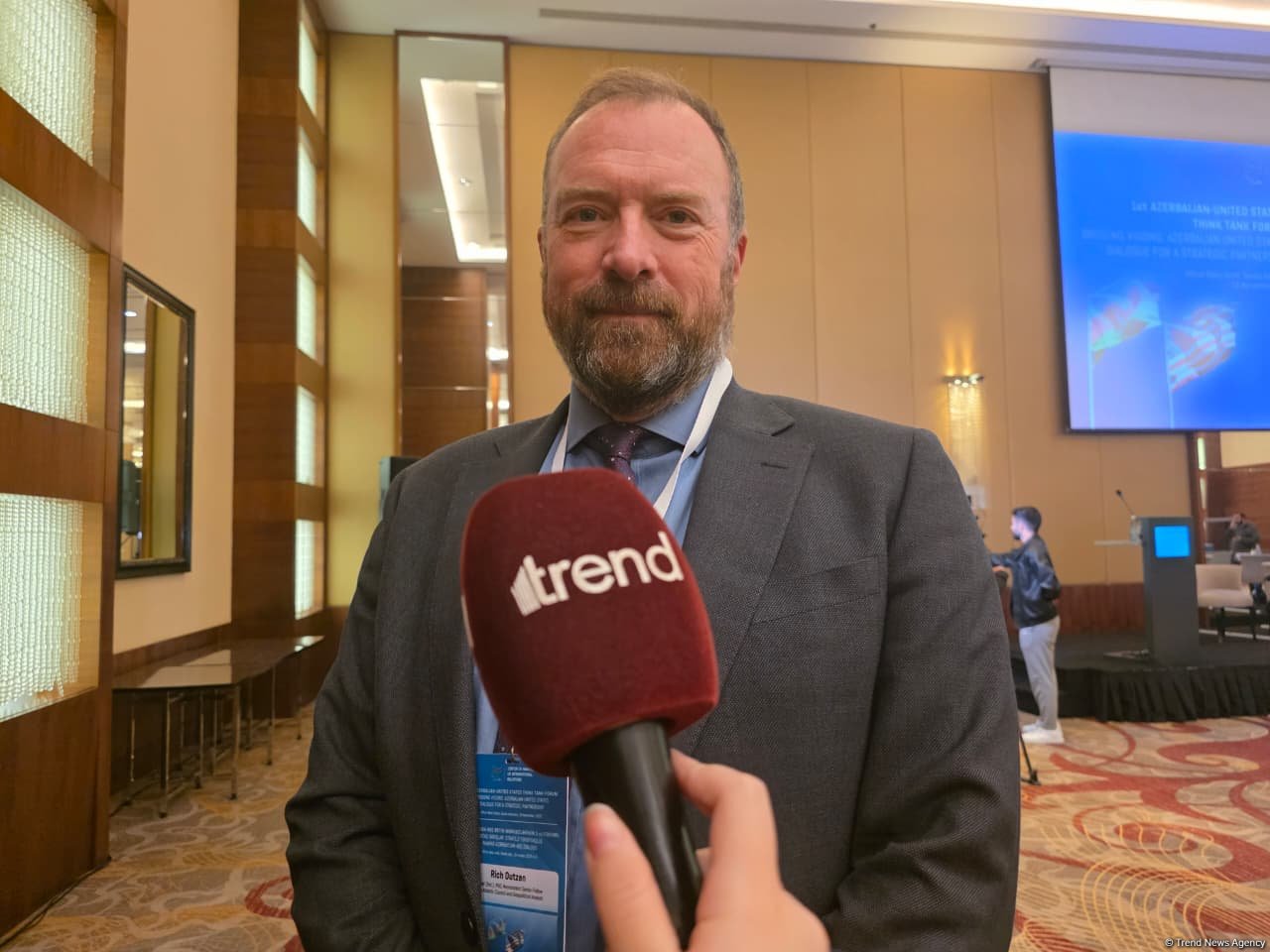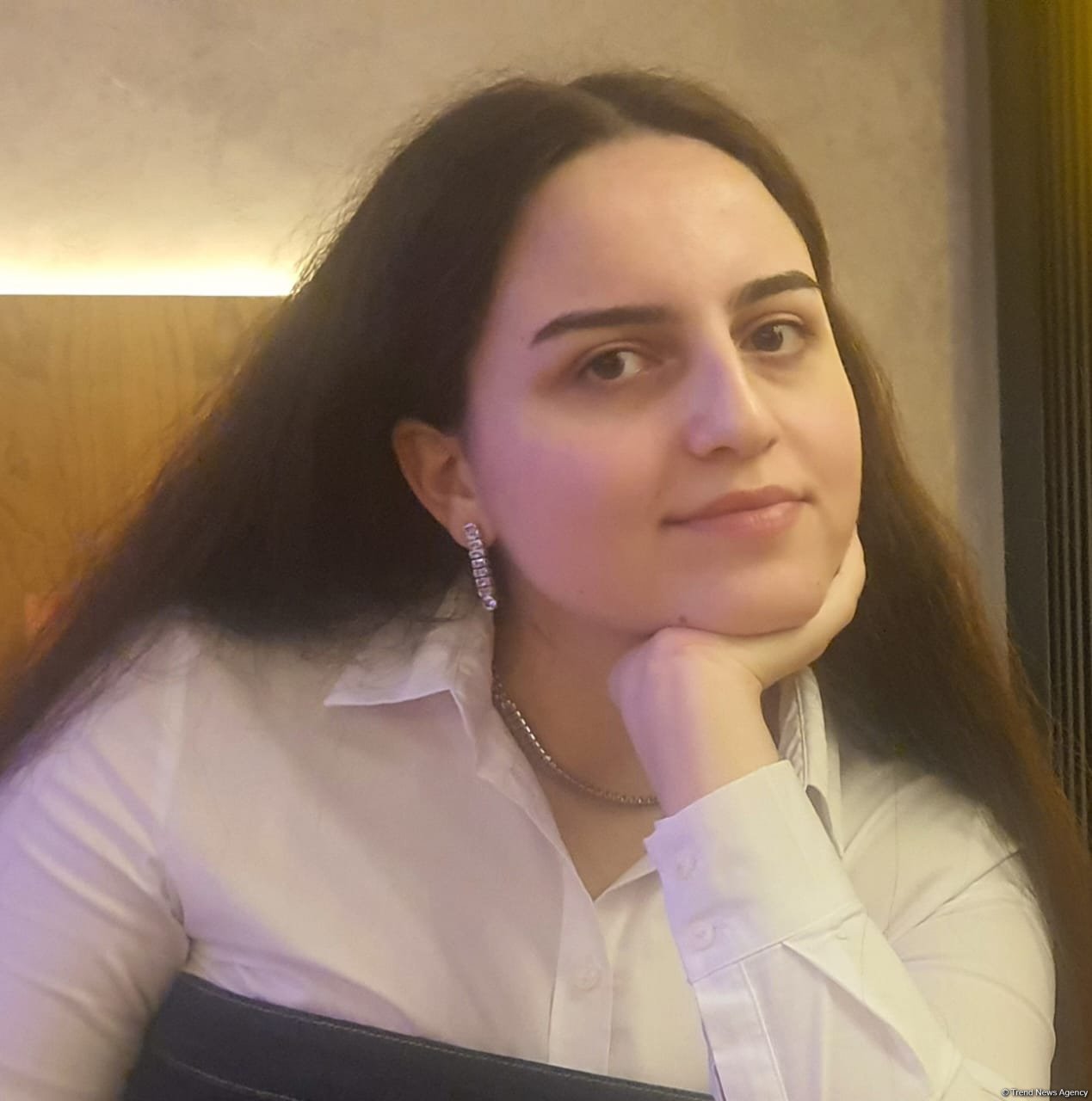BAKU, Azerbaijan, November 19. Azerbaijan’s need to diversify its economy and generate new revenue streams is creating significant opportunities for cooperation with the United States, Rich Outzen, senior non-resident fellow at the Atlantic Council and geopolitical analyst, told Trend.
Speaking on the sidelines of the 1st Azerbaijan–US Think Tank Forum, he noted that one of the key points highlighted during the discussions was the changing outlook of Azerbaijan’s traditional oil sector.
“What I found most compelling today is the insight that Azerbaijan's oil revenues and production are beginning to stabilize. As a result, Azerbaijan is now contemplating, much like the Gulf countries, how to diversify its revenue streams. This includes exploring advanced technologies, information technology, not just green energy, but also AI, advanced manufacturing, and similar high-value sectors,” he remarked.
He further explained that these high-value industries are areas where U.S. expertise can play a significant role. “Automated manufacturing, as well as services, could be pivotal. As Azerbaijan transitions from a resource-based economy to one driven by services and knowledge, the U.S. can offer substantial support,” Outzen added.
He emphasized that the rapid pace of technological advancements makes deeper collaboration particularly timely. “With developments moving so swiftly in areas such as additive manufacturing, 3D printing, and AI, we may not even fully grasp what the next five to ten years will bring in terms of manufacturing innovations,” he noted.
In response to a question regarding the broader outlook for bilateral cooperation, Outzen highlighted the recently signed agreements between the two nations as a positive step toward enhanced collaboration.
“We can look at the agreements that were signed or the initial agreements. The framework that was signed on August 8th serves as the broad foundation, including the Trump Route for International Peace and Prosperity (TRIPP), and the bilateral memorandas signed between Washington and Yerevan, and Washington and Baku,” he said.
He stressed that these documents mark “a new start” for multiple initiatives. “Some of these are related to the small strip of land - the Zangezur corridor, about 30 kilometers or so - but much of it is broader thinking about how to stimulate foreign direct investment that will benefit both Azerbaijan and Armenia, and the region more broadly,” he noted.
Outzen also noted active discussions within the US government and private sector. “There are probably two or three dozen ideas about how to expand trade - some related to energy, some to infrastructure, some to technology, green energy - all these sorts of things,” he said.
He added that the Middle Corridor stands out as a key platform for new initiatives. “It represents, an opportunity for dozens or hundreds of new projects that will make money and bring stability and trust to the region, but most importantly, for the United States and for Azerbaijan,” he concluded.







